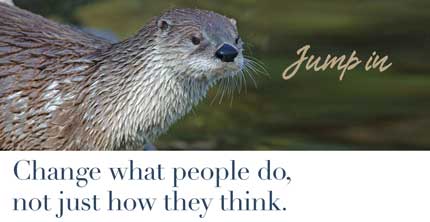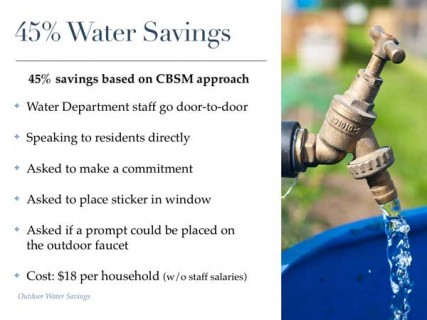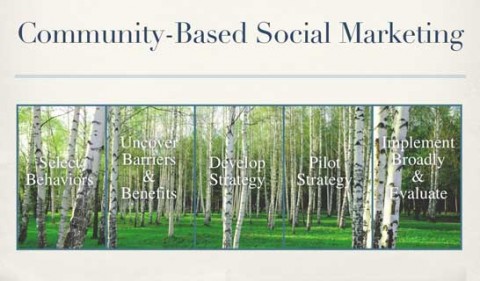Eco-education is a vital stepping stone in the process of getting people to change what they do, not just how they think. If people don’t know how to go about making a more sustainable world what chance do we have of creating one? But just informing people, and expecting them to change behaviors, is not realistic. The literature on the subject is very clear: educating people about how to make the world a better place is simply not enough.
The good news is that people are beginning to see that we need to affect change at a deeper level, and the tools to do the job are available. With these tools environmental program managers will be able to address energy conservation, alternatives to automobile transportation, and our holding on to our precious water reserves in this time of extreme drought. These tools come under the heading of Community-Based Social Marketing.
On April 22, a group of sustainability managers from the County of Sonoma and local towns took time from their schedules at 7:30 am, to attend the Agency for Earth seminar: “Change What People Do, Not Just How They Think – A Free Behavior Change Seminar for Sustainability Professionals,” which was hosted at Santa Rosa’s Finley Center.
Agency for Earth founder Jeffrey Schmidt outlined for our guests numerous case studies on how to leverage real behavioral change. He also outlined the principles and practices of Community-Based Social Marketing. Community-Based Social Marketing is emerging as the go-to solution for environmental program managers who want their program to affect real behavioral change.
Jeffrey covered the basics of 5 steps that make Community-Based Marketing campaigns successful:
1. Choose the behavior you would like to encourage in your audience – such as shorter minute showers, carpools to work, etc.
2. Identify barriers and benefits to the behavior
3. Produce a strategic program to decrease barriers and increase benefits of the behavior, paying particular attention to the influence of social norms.
4. Pilot-test the program
5. Deliver and then evaluate the program
By the time Jeffrey had finished his presentation the program managers in the room had filled their toolboxes with the most powerful behavior change tools available.
The exciting prospect here is that our resource conservation agencies – the ones charged with assuring our water, electric utilities, and smart transportation – will have tools to rally the public around sustainable practices, get their buy-in for new and ongoing conservation habits.
This information needs to get out to all the program managers in California and the rest of the county. Agency for Earth is dedicated to making this happen in order to make a sizable contribution to making our society a sustainable one.


